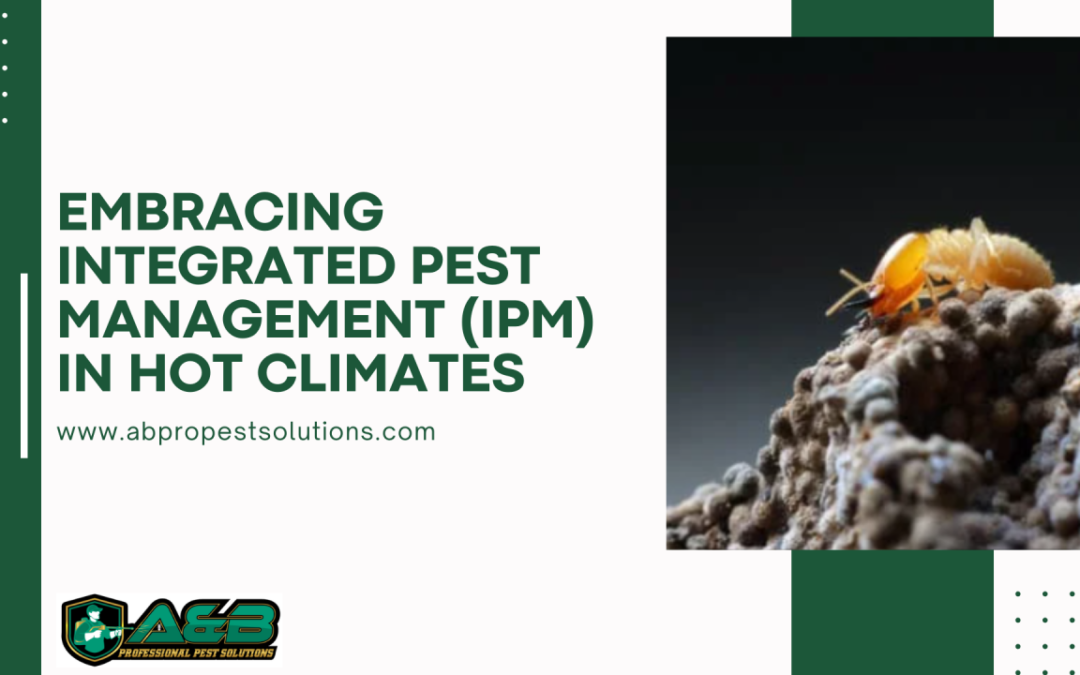With the rising temperatures, pest management has become a critical concern for businesses, especially in food processing and manufacturing. Integrated Pest Management (IPM) not only offers a systematic approach to managing pests but also ensures compliance with health and safety standards. Understanding the role of IPM in hot climates can safeguard your operations from unexpected infestations and maintain the integrity of your products.
The Importance of IPM in Heat
Heat can accelerate the lifecycle of many pests, increasing their populations exponentially. In such climates, traditional pest control methods often fall short. IPM stands out by not just reacting to infestations but proactively preventing them. This method combines biological, cultural, physical, and chemical tools to minimize pest activity and damage. For businesses in hot regions, adopting IPM means staying ahead of potential pest-related disruptions.
Common Pests in Hot Climates
Several pests thrive in warm environments, each posing unique threats to hygiene and safety. Common culprits include:
- Cockroaches: These pests are attracted to warm, moist environments typical of food processing areas and can contaminate food products with bacteria and pathogens.
- Rodents: Warmth provides ideal breeding conditions for rodents, who can damage electrical installations and packaging, leading to significant losses.
- Flies: High temperatures are perfect for fly populations to flourish, leading to severe contamination risks in food handling areas.
Recognizing these pests and understanding their behavior during hot weather is the first step in an effective IPM strategy.
Benefits of IPM for Food Processing and Manufacturing
For sectors like food processing and manufacturing, where product integrity is paramount, IPM provides extensive benefits:
- Reduced Risk of Contamination: By managing pest populations proactively, IPM significantly lowers the risk of food contamination.
- Compliance with Regulations: Many industries are governed by strict regulatory requirements regarding pest control. IPM helps ensure that businesses meet these standards.
- Cost-Effectiveness: Although IPM may require an initial investment, its focus on prevention reduces the need for extensive pest control measures later, which can be more expensive and disruptive.
Implementing IPM Strategies
Implementing an effective IPM plan involves several key steps:
- Assessment: Regularly inspect your facilities to identify potential infestation risks.
- Prevention: Address structural vulnerabilities in buildings and improve sanitation to eliminate conditions that attract pests.
- Monitoring: Set up traps and other monitoring tools to detect pest activities early.
- Response: Tailor your pest control interventions based on the specific pests and their level of activity, using the most targeted and environmentally friendly methods available.
As temperatures climb, the importance of a well-structured IPM program becomes undeniable. For businesses in food processing and manufacturing, where quality and compliance cannot be compromised, embracing IPM is not just an option—it’s a necessity. By understanding the common pests of hot climates and their impact, and by implementing strategic IPM practices, your business can continue to operate smoothly and safely, regardless of the external conditions.
#PestManagement #FoodSafety #Manufacturing #IPM #BusinessResilience #ABProPestSolutions
To know more about A&B’s services, please visit the A&B’s website (www.abpestsolutions.com.ph) or Facebook Page (https://www.facebook.com/ABPestSolutions/) to know more about their services. A&B also disinfects workplaces or houses to kill COVID-19 Virus.
You may also contact: +63 905 496 4550 and +63 951 062 4830
A&B Professional Pest Solutions Corporation is located at the Ground Floor of Monterey Building at Genesis St., Centro de San Lorenzo, Santa Rosa, 4026 Laguna, Philippines

